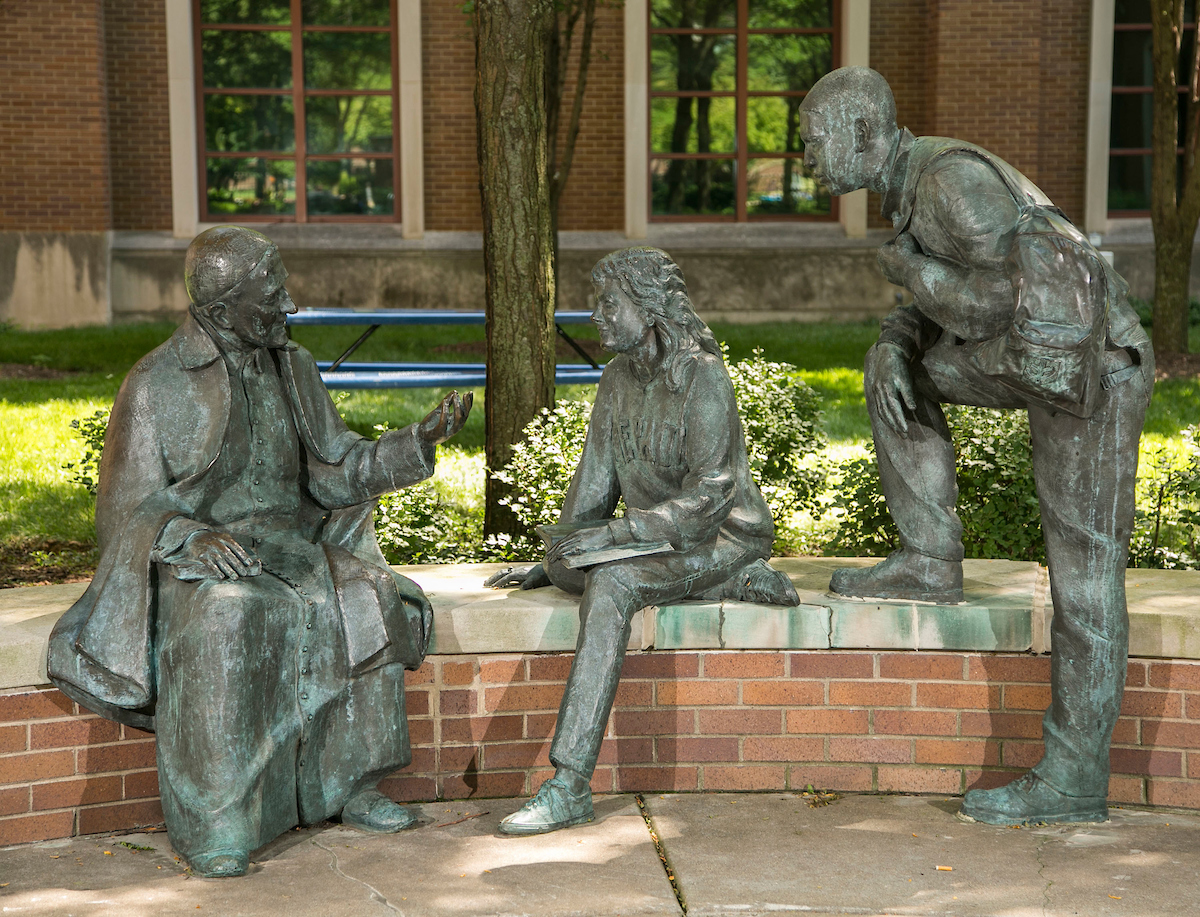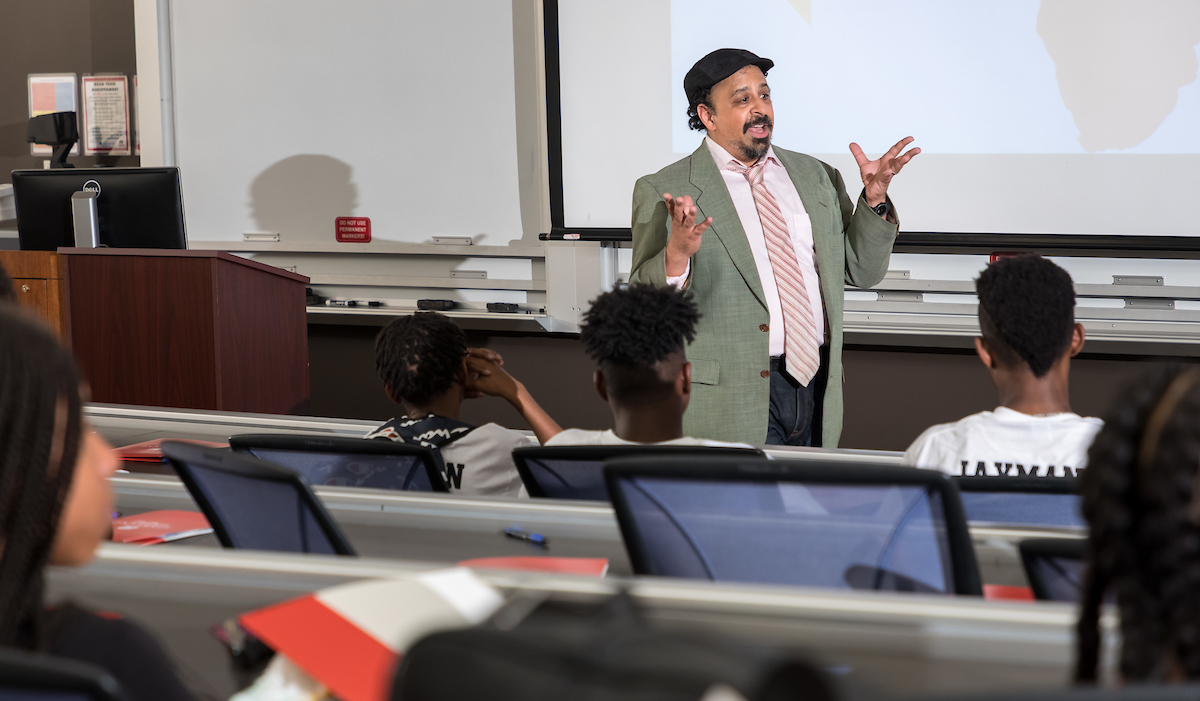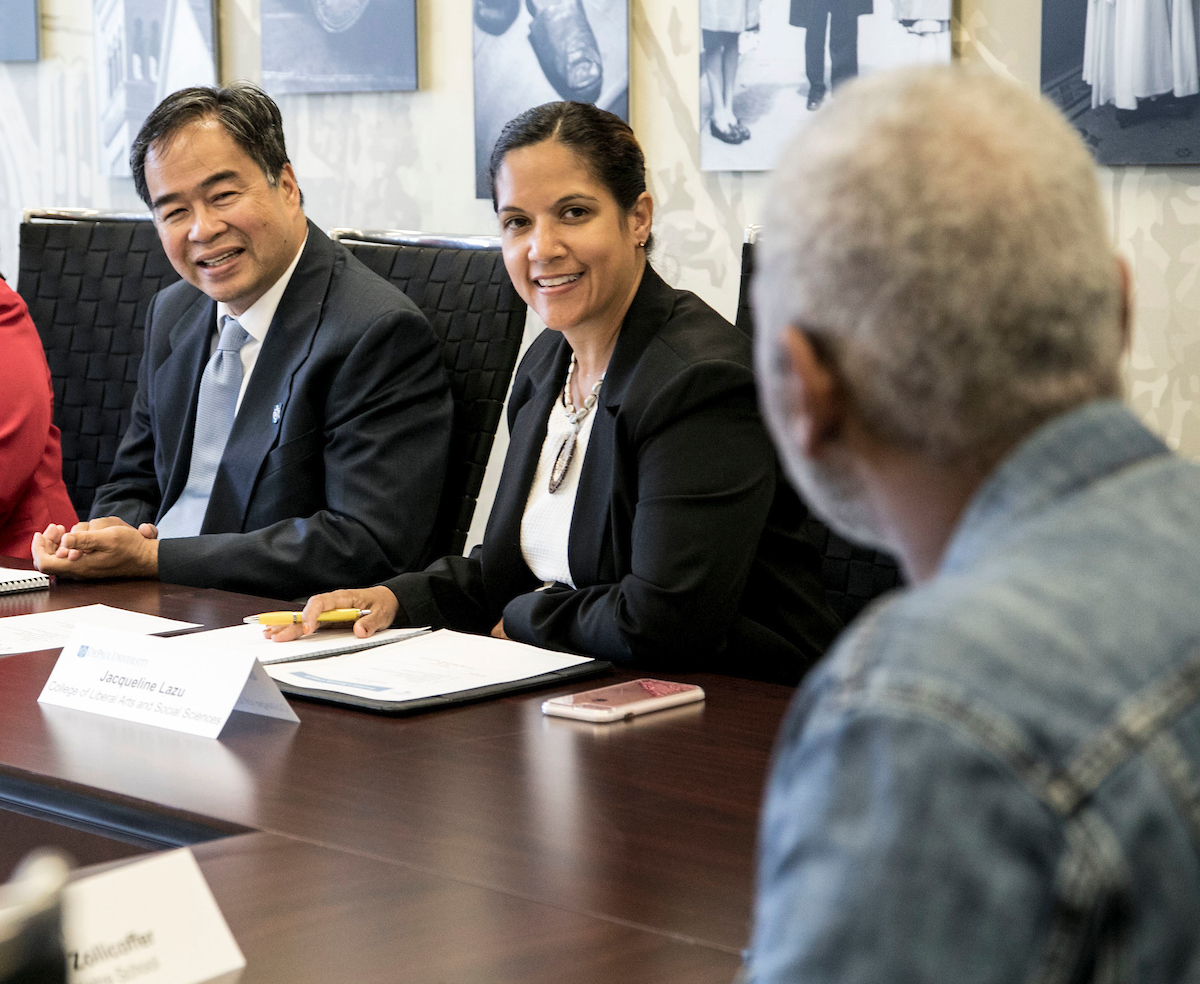 (DePaul University/Jamie Moncrief)
(DePaul University/Jamie Moncrief)
DePaul has named two longtime members of the College of Liberal Arts and Social Sciences as Diversity Fellows for the 2022-23 academic year. Amor Kohli, an associate professor and chair of the Department of African and Black Diaspora Studies, and Jacqueline Lazú, an associate professor and associate dean of research and graduate studies, will work closely with senior leadership during a one-year term beginning in September.
"We established the fellowship program to create an opportunity for faculty to lend their expertise and help DePaul achieve specific strategic objectives related to diversity and inclusion," says DePaul President A. Gabriel Esteban. "Professors Kohli and Lazú will carry on the crucial work of previous fellows to cultivate an engaged, diverse and inclusive campus for everyone. I’m delighted they are willing to share their experience with our university."
Entering its fourth year, the Diversity Fellowship program has included initiatives focused on supporting working parents, increasing Latinx enrollment, retention and graduation, tightening the university's focus on diversity, equity and inclusion, and educating incarcerated and formerly incarcerated students.
Fellows bring substantive understanding and intellectual rigor to discussions around DePaul's strategic diversity, equity and inclusion priorities through research and other activities.
Amor Kohli
Kohli will use his fellowship year to develop the foundation of a university-wide mentoring program for faculty from underrepresented groups. The goal of this program, he says, is to support the retention of underrepresented faculty.
 Amor Kohli, an associate professor and chair of the Department of African and Black Diaspora Studies, addresses students from Betty Shabazz Charter School in 2018. (DePaul University/Jeff Carrion)
Amor Kohli, an associate professor and chair of the Department of African and Black Diaspora Studies, addresses students from Betty Shabazz Charter School in 2018. (DePaul University/Jeff Carrion)
DePaul has existing, often informally organized mentorship opportunities, Kohli notes. At the same time, he adds, "relying solely on informal mentorship can quickly become tricky when everyone involved is so busy. In the thick of an academic quarter, even with the best of intentions weekly meetings can become rescheduled to every-other-week meetings, then monthly meetings, and so forth. Again, everyone is very busy, so hopefully we can figure out better ways to support the mentorship process."
The university's Chicago location creates an inherent strength in attracting minority faculty candidates, Kohli says. "However, there is really a significant difference between recruitment and retention."
"We must address current structural inequities for the full realization of the ideals expressed in DePaul's mission, ideals which are inseparable from diversity, equity, and inclusion objectives," Kohli says. "The Diversity Fellowship presents a great opportunity to work with university leadership towards achieving our common goals. The potential to impact and develop policy and programs to support underrepresented faculty is particularly appealing, especially at the moment when we'll have a new president beginning at DePaul."
Jacqueline Lazú
Lazú intends to use her fellowship year to pursue a reparative history project that, she says, will help promote "an increased sense of pride for the role that DePaul students, faculty and staff played in writing civil rights history."
 Jacqueline Lazú, an associate professor and associate dean of research & graduate studies, joins President A. Gabriel Esteban at a 2017 meeting of the President's Diversity Council (DePaul University/Jamie Moncrief)
Jacqueline Lazú, an associate professor and associate dean of research & graduate studies, joins President A. Gabriel Esteban at a 2017 meeting of the President's Diversity Council (DePaul University/Jamie Moncrief)
Lazú intends to connect the Lincoln Park campus with the history of the surrounding neighborhood, which served in the 1940s and 1950s as a primary place of settlement for Puerto Ricans moving to Chicago. She calls this a "long-overdue gesture toward reconciliation with the community that served as our initial host and whose sacrifice we have yet to proportionately honor."
Lazú also looks to add to the story of what Latinx students, staff, and faculty have contributed to DePaul over decades — "critical information for understanding DePaul as a university with a long history of engagement with issues of diversity and equity."
This work, she adds, will help in "articulating DePaul's distinctiveness as a rising Hispanic Serving Institution."
"It's an enormous honor for me to be chosen as a 2022-2023 Diversity Fellow," Lazú says. "The program has supported the work of some of our most deeply committed colleagues to issues of equity and restorative practices. Their work has been meaningful and impactful. It's a privilege to be included in this network of engaged leaders and change agents, now also working with the vision of a new president. I'm excited to lead a project that recollects and holds space for the contributions of Latinxs and people of color in the history of DePaul."